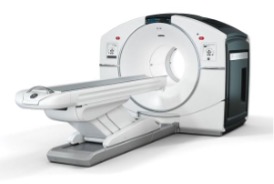Need for Monitoring
As a multisystemic disease, Erdheim-Chester Disease must be closely monitored, no matter what treatment a patient might be using. It is recommended that anyone with a diagnosis of ECD have the following tests performed periodically to monitor the disease and potential treatment side effects:
- Cardiac monitoring. For patients with cardiac involvement, an additional cardiac and/or aortic evaluation should be performed every three months until the progression is stabilized with treatment. At this point, studies are often extended to every six months. A periodic electrocardiogram is also required for patients treated with BRAF inhibitors.
- CNS monitoring. If CNS involvement is found or suspected, MRI evaluation of the brain with specific studies on the cerebellum should be repeated every three months until progression is stabilized with treatment. At that point, studies are often reduced to once every six to twelve months.
- Scans that might be considered for some patients. PET/CT scans monitor the activity and extent of disease and response to therapy. As advised by a physician, these tests might be considered every 3 to 6 months until the disease is stabilized.
- Pituitary/hormone monitoring. An evaluation of the pituitary function is suggested for some patients. A treating physician will consider whether hormone levels, including testosterone, ADH, thyroid hormones, insulin, ACTH, and PTH testing by an endocrinologist (hormone specialist) is needed.
- Skin monitoring. For patients on BRAF- and/or MEK- inhibitors, a skin exam should be performed every three months after starting therapy, extending to every six months once the disease is stabilized.
- Eye monitoring. For patients on MEK inhibitors, a dedicated retinal dilated exam is recommended within 4-6 weeks of starting treatment and then can be followed up every 3-6 months or as clinically indicated.
Physical (physio) Therapy
In addition, ECD patients need early initiation of physical (physio) therapy services. Depending upon the patient’s symptoms, this may include physical therapy, occupational therapy, and/or speech/swallowing therapy. Patients and doctors report this is an important part of treatment management that should not be overlooked.
Psychological Considerations
Finally, any patient experiencing psychological or psychosocial issues should discuss this with their doctor. This is not uncommon for ECD patients, and treatments can help. Patients are encouraged to continue with social interactions and leisure activities they enjoy. Seeking counseling and getting involved with the ECDGA through offered programs have also been found to help patients.
Survivorship Needs
- Fatigue is a significant issue for patients with ECD, often due to the disease itself and treatment side effects. Although few interventions have been validated to improve this problem, several approaches are recommended:
- Exercise: Clinicians should strongly recommend exercise (aerobic, resistance, or a combination) whenever possible.
- Cognitive Behavioral Therapy (CBT): Clinicians should recommend CBT, with or without hypnosis.
- Mindfulness-Based Programs: Clinicians should recommend mindfulness-based programs to reduce fatigue and cancer-related stress.
- Tai Chi or Qigong: Several studies have shown positive results in reducing fatigue in cancer patients.
- Pharmaceutical Intervention: Psychostimulants have not shown benefits for fatigue in cancer patients. Antidepressant treatment can be used for patients with depressive symptoms, though it will not improve fatigue itself.
- Neurological Disability. A supportive care program is essential for patients with neurological disabilities related to histiocytosis. Occupational therapy and physical therapy are mandatory to improve the quality of life. A neurologist, in collaboration with the supportive care team, is essential to provide a personalized care plan depending on the patient’s disability. Both issues must be discussed with ECD specialists to distinguish between fatigue or disability related to the cancer itself and treatment intolerance or side effects. [These recommendations are derived from the ASCO report for cancer survivors.]
More Information About Surviving with ECD
See:
National Comprehensive Cancer Network (NCCN) Survivorship Issues in Adult Patients With Histiocytic Neoplasms.
Last updated: November 15, 2024









